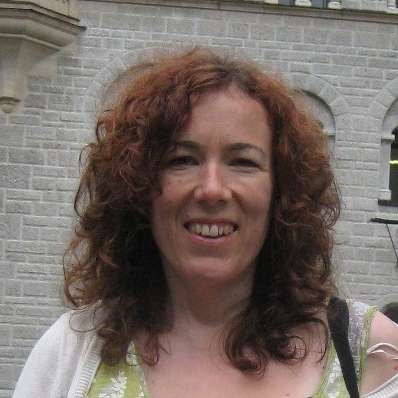As part of their Late Mix programme at the Sage Gateshead, Northern Sinfonia put on a performance of two dramatic chamber works, from either end of the twentieth century. Both works were due to be performed by soprano Claire Booth, but she was replaced by Rebecca-Jane Lea for Judith Weir’s Consolations of Scholarship and by Allison Bell for Schönberg’s Pierrot Lunaire. We had what appeared to be a hastily photocopied programme, and no announcement was made about the change, so I can only assume that this was a last minute emergency – in which case both singers and the players are to be congratulated for pulling such complex pieces together so smoothly.
Written in 1912, Schönberg’s expressionist piece Pierrot Lunaire is one of the key works of the twentieth century, setting the direction for many works to come. The harmony is atonal, and the piece is scored for a mixture of woodwinds, strings, piano and singer – seven musicians in all, including the conductor (the piece is full of number games and its full title is “Three times Seven Poems from Albert Giraud's Pierrot Lunaire”).
The aim of expressionism was to convey the innermost feelings of the artist, particularly the anxiety and fears of the modern world, without trying to disguise harsh reality under a veneer of beauty. On their own, the poems of Giraud reek of sickly late 19th century decadence, and they are not the for the squeamish, but Schönberg’s harsh atonality and the Sprechstimme technique where the performer half speaks, half sings, with no defined pitch, brings out a sharp violence and mockery.
Allison Bell’s clothes, hair and makeup vaguely suggested the standard image of Pierrot the clown, without overdoing the effect, and although she initially appeared somewhat awkward on the stage, slouching in overly high heels, this was soon forgotten in her arresting performance and her eloquent facial expressions. The gruesomeness of the 16th poem “Practical Joke” (look it up if you really want to know) was written all over her face, and her high pitched screams at the end of “Madonna” were terrifying. She relished the big consonant clusters of the German text, and was equally convincing in the mockery and girlishness of the early poems, the fevered horrors of the middle section and the tender nostalgia of the ending.
Judith Weir’s “Consolations of Scholarship” for solo soprano and a mixture of solo wind, string and percussion instruments is clearly part of the same tradition as Pierrot Lunaire, and also has a local connection as it was commissioned by Durham University’s Musicon concert series in 1985. Based on Chinese drama from the thirteenth century, the piece tells the story of a young man who stumbles across the story of his father’s fate whilst browsing through neglected texts in a library. The solo soprano alternates between spoken word and singing to portray the various characters of the work. Rebecca-Jane Lea played all the parts convincingly, bringing out the story with great expression, but at times she seemed overpowered by the instruments, particularly in the sung passages. She was very effective in the library scene, where the young man reads out various obscure texts with a puzzled manner, followed by a sense of growing tension, built up with pizzicato strings and tubular bells, as the young man reads, with growing realisation, the truth about his father’s death.
The Northern Sinfonia soloists were magnificent in both of these demanding pieces. I particularly enjoyed the lyrical oboe and cello duet passage in the Consolations of Scholarship and Cormac Henry’s frenetic, and impossibly high, piccolo passages. Throughout Pierrot Lunaire the string players Kyra Humphreys and Lousia Tuck seemed cool and effortless against the feverish woodwind parts and Katherine Lacy’s clarinet was astonishing, particularly in the fifth poem “Chopin Waltz”. The entire ensemble came together beautifully for the wave-like effects of “Homeward Bound” as the poet sails home and the piece ended with the nostalgia of fairytales beautifully conveyed by the strings in its closing moments.


